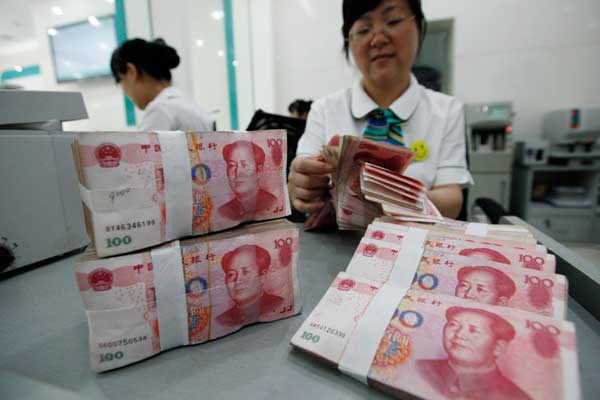A step toward RMB internationalization
The European Central Bank's announcement of a new 350 billion yuan swap agreement with the People's Bank of China on Oct 10 comes at a curious time.
Namely, we suspect that the current dysfunction in Washington may have accelerated the ECB's discussions on the matter and may have tipped the scales in favor of early approval. We tend to think of China's push for swap agreements with other central banks as a key step toward the internationalization of the renminbi. These swap agreements greatly facilitate the widespread use of the RMB in everyday trade transactions.

A teller counts bank notes at one of Industrial and Commercial Bank of China Ltd's branches in Huaibei, Anhui province. [provided to china daily]
In particular, if a central bank has ready access to RMB directly from the PBOC, then local banks are much more willing to offer trade financing in RMB to local companies, thereby enhancing its use. For Chinese companies, the direct swap agreements and settlement in RMB reduces the costs of using an intermediary currency such as the US dollar.
In the lingo of the IMF, the swap agreements now with at least 21 central banks including the Bank of England help to make the RMB "widely tradeable", which in turn is a key step toward the hallowed status of becoming a reserve currency.

























